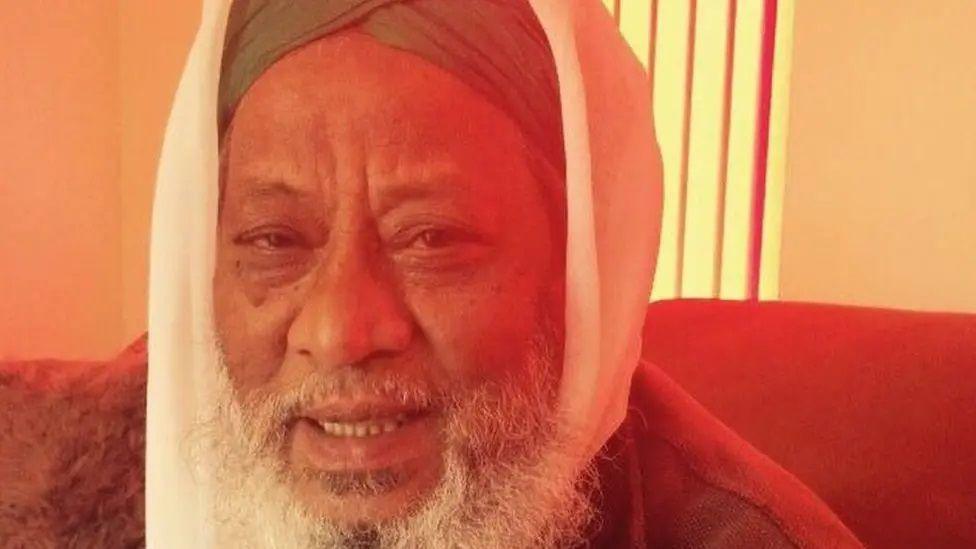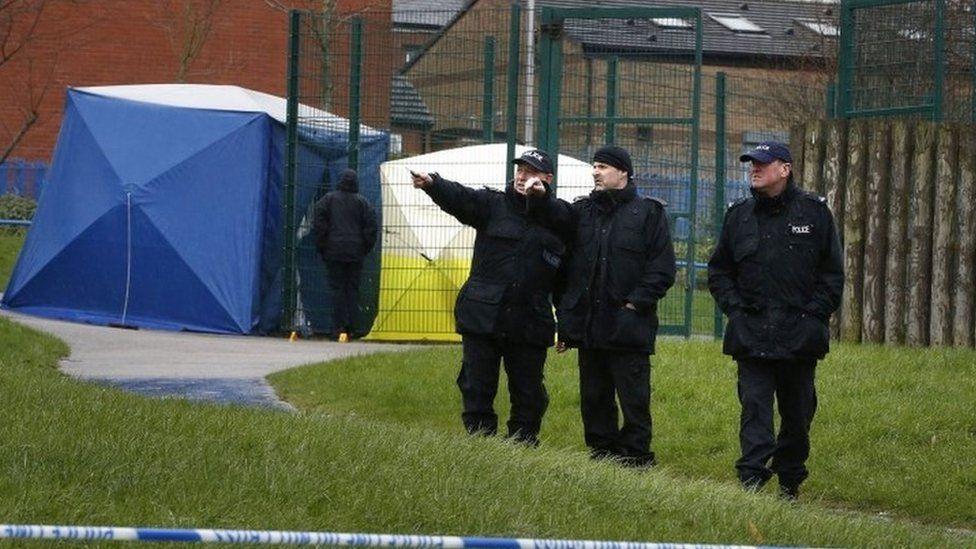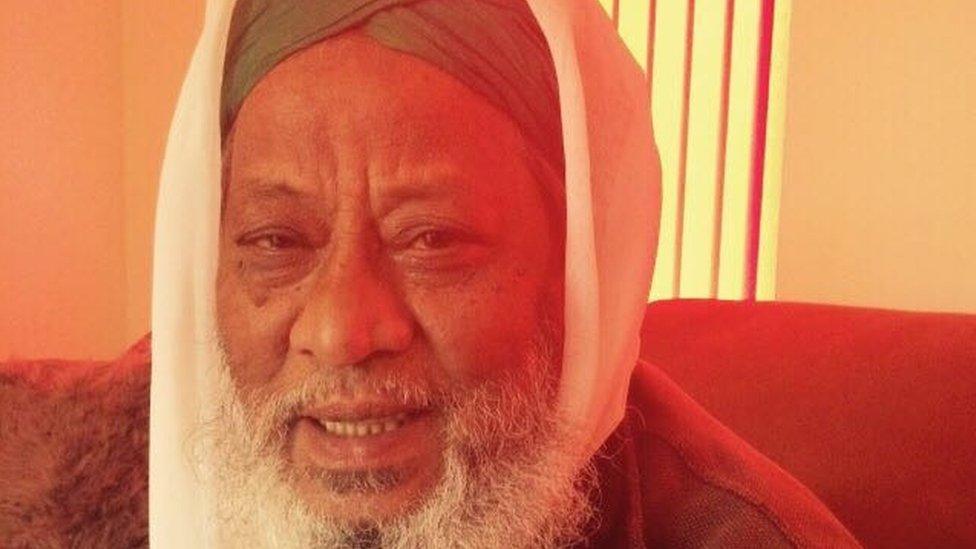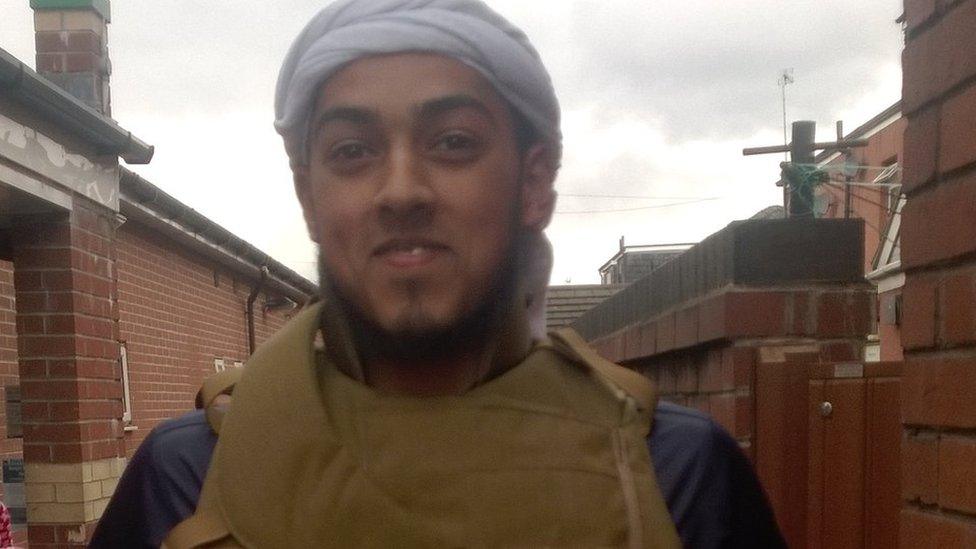Extremist killers described imam as 'Voldemort'

The men who killed Jalal Uddin opposed the form of exorcism known as Ruqyah
- Published
Two Islamic State extremists who planned the murder of an imam referred to him as "Voldemort" who was engaging in "black magic", a public inquiry has heard.
The inquiry aims to establish whether intelligence failures contributed to the death of Jalal Uddin, 71, in February 2016.
Mohammed Kadir, then 24, is believed by detectives to have fatally struck father-of-seven Mr Uddin with a hammer.
The inquiry at Liverpool Crown Court heard Kadir, from Oldham, Greater Manchester, had been flagged by police as a "person of high risk" after he made extremist posts on social media six months before the attack.
Kadir, who fled the UK after the killing, was said to have a planned the killing with former Manchester United steward Mohammed Syeedy, who was convicted of murder and jailed for life.
Syeedy, then 21, drove Kadir to and from the scene of the attack, while a third man, Sayadul Hussain, was convicted of helping Kadir flee the country.
The three men were supporters of the Islamic State (IS) militant group, the inquiry heard.
Form of exorcism
The men were opposed to Mr Uddin’s practice of Ruqyah, a form of exorcism which is regarded by some as “black magic”, said Jason Beer KC, counsel to the inquiry.
Mr Beer said sometimes this involved the use of amulets known as “taweez”, which can contain written verses of the Koran and can be worn around the neck.
This was of a "high degree of significance" in understanding the murder, he added.
The men sometimes referred to Mr Uddin as “Voldemort”, a reference to the villain in the Harry Potter novels, he said.
The inquiry heard that in August 2015, six months before the murder, police became aware of extremist posts on Facebook by a user later identified as Kadir.

Mr Uddin was attacked in a play area in Rochdale
In September 2015, associates of Kadir and Syeedy stole items linked to Mr Uddin’s practise of Ruqyah from the Jalalia Mosque in Rochdale.
There were further Facebook exchanges by Kadir and others expressing antipathy to Ruqyah.
Kadir and Syeedy also planned to report Mr Uddin to the Border Force, the inquiry heard, as he was in the UK illegally.
But the inquiry heard on 23 December, 2015, Mr Uddin was photographed with Simon Danczuk, the then-MP for Rochdale, at the door of Jalalia Mosque.
A phone exchange between the two plotters and others, stated: "Oh dear. Voldemort is never going to be busted by the immigration service now."
Risk to society
By October 2015 Mohammed Kadir was assessed as a person who was of high risk and significant concern, and later as someone who posed a risk of acting on his extremist Islamist views.
Mr Beer said a judge involved in earlier inquiry proceedings ruled background facts gave rise to a credible suggestion Mohammed Kadir was a risk to society and authorities knew or ought to have known of the risk and acted to avoid it.
Inquiry chairman Judge Thomas Teague KC said some of the evidence would be heard in closed session because of the need to protect national security.
But he said he was “astute to the need to expose as much of the evidence as we can to the public gaze.”
The inquiry was set to last three days and its report was expected to be published next summer.
Listen to the best of BBC Radio Manchester on Sounds and follow BBC Manchester on Facebook, external, X, external, and Instagram, external. You can also send story ideas to northwest.newsonline@bbc.co.uk, external
Related topics
- Published7 December 2023

- Published16 September 2016

- Published16 September 2016
